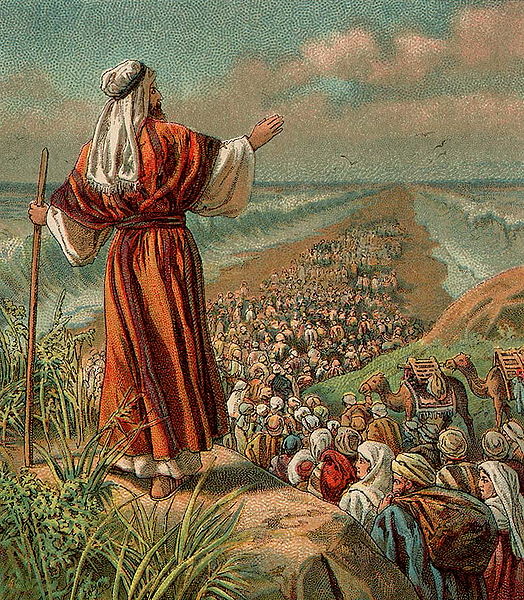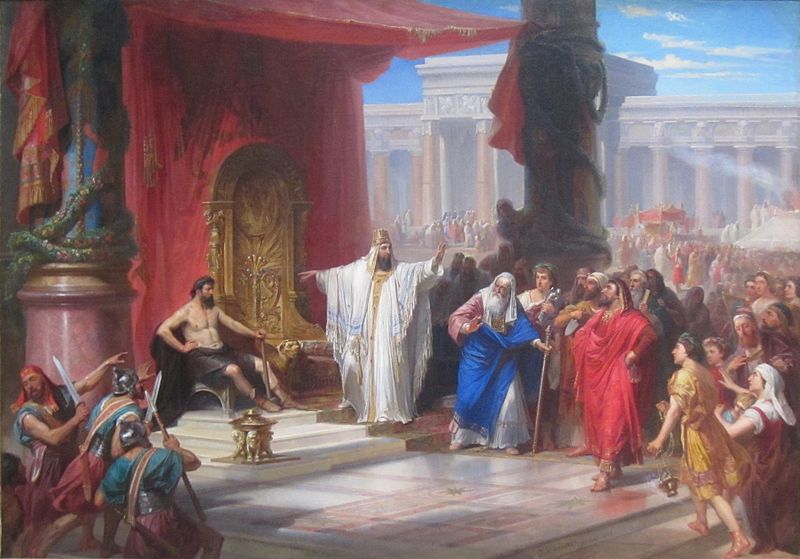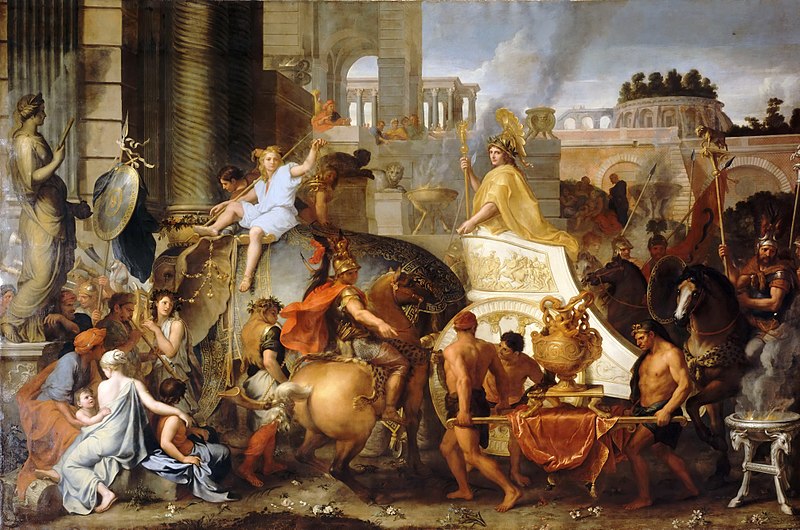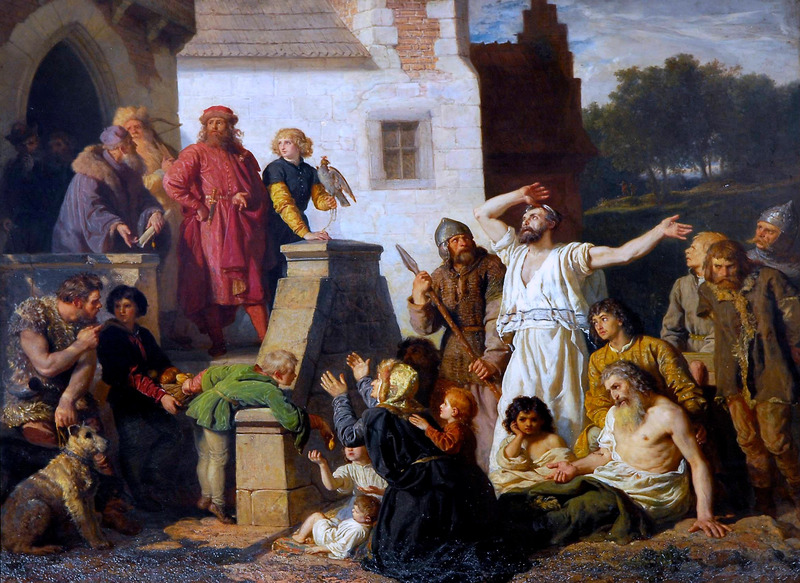Jewish history is a rich tapestry of events spanning thousands of years, marked by profound religious, cultural, and political developments.
From the ancient covenant with Abraham to the modern establishment of the State of Israel, the journey of the Jewish people is a story of survival, resilience, and adaptation.
This overview will explore key moments in Jewish history, from biblical times to the present day, shedding light on the enduring traditions, challenges, and contributions of Jewish communities around the world.
| Event | Date |
|---|---|
| Covenant with Abraham | c. 2000 BCE |
| Exodus from Egypt | c. 13th century BCE |
| Conquest of Canaan | c. 12th century BCE |
| United Kingdom | c. 11th century BCE |
| Divided Kingdom | c. 10th century BCE |
| Babylonian Exile | 586-538 BCE |
| Return from Exile | 538 BCE |
| Second Temple Period | 516 BCE – 70 CE |
| Hellenistic Period | 4th-2nd century BCE |
| Maccabean Revolt | 167-160 BCE |
| Roman Rule | 63 BCE – 70 CE |
| Diaspora | 70 CE – Present |
| Rise of Rabbinic Judaism | 2nd-6th centuries CE |
| Middle Ages | 5th-15th centuries CE |
| Enlightenment and Emancipation | 18th-19th centuries |
| Holocaust | 1933-1945 |
| Establishment of Israel | 1948 |
| Arab-Israeli Conflict | Ongoing |
Timeline of Jewish History
Covenant with Abraham (c. 2000 BCE):
According to the Hebrew Bible, God’s covenant with Abraham marks a pivotal moment in Jewish history. Abraham, originally from the city of Ur in Mesopotamia, is considered the father of the Jewish people.
Also Read: Timeline of the History of Jerusalem
God promised Abraham that he would be the father of a great nation, and his descendants would inherit the land of Canaan (the Promised Land).
This covenant is significant because it laid the foundation for the special relationship between God and the Jewish people. It established the concept of monotheism in a world where polytheism was prevalent.

Exodus from Egypt (c. 13th century BCE):
The Exodus is one of the most iconic events in Jewish history. It recounts the liberation of the Israelites from slavery in Egypt under the leadership of Moses.
Moses, after receiving a divine call at the burning bush, confronted Pharaoh with the demand, “Let my people go.”
Also Read: Facts About Zionism
The Exodus culminated in the miraculous parting of the Red Sea, allowing the Israelites to escape from pursuing Egyptian forces. They received the Ten Commandments and other laws at Mount Sinai during their journey in the wilderness.
This event is commemorated annually during the Jewish holiday of Passover and holds immense theological and historical significance for Judaism.
Conquest of Canaan (c. 12th century BCE):
After wandering in the desert for 40 years, the Israelites, under the leadership of Joshua, entered the land of Canaan. This marked the fulfillment of God’s promise to Abraham and the beginning of their settlement in the Promised Land.
The conquest of Canaan involved a series of military campaigns to capture various territories and cities. Jericho is one of the most famous cities to fall during this period, according to the biblical account.
The Israelites established themselves as a people with a unique religious and cultural identity in the land of Canaan, and this period laid the groundwork for the establishment of the united kingdom of Israel under King Saul, David, and Solomon.
United Kingdom (c. 11th century BCE):
The United Kingdom of Israel was established with King Saul as the first king, followed by King David and King Solomon. This period is often referred to as the “Golden Age” of Israelite history.
King David is particularly significant in Jewish history. He is credited with conquering Jerusalem and making it the capital of the kingdom. Additionally, David is traditionally associated with the composition of the Psalms, a central book in the Hebrew Bible.
Under King Solomon, the First Temple in Jerusalem was constructed, which became the central religious and spiritual center for the Jewish people.

Divided Kingdom (c. 10th century BCE):
After Solomon’s reign, the kingdom split into two separate entities: the Northern Kingdom of Israel, with its capital in Samaria, and the Southern Kingdom of Judah, with its capital in Jerusalem.
The division occurred due to political and religious differences. The Northern Kingdom, in particular, adopted idolatrous practices, which went against the religious traditions of the Southern Kingdom.
This division ultimately weakened the Israelite nation and made it vulnerable to foreign invasions.
Babylonian Exile (586-538 BCE):
The Babylonian Exile, also known as the Babylonian Captivity, was a significant and tragic event in Jewish history. It began when the Babylonian Empire, under King Nebuchadnezzar II, conquered Jerusalem and destroyed Solomon’s Temple in 586 BCE.
Many Jews were forcibly deported to Babylon, where they lived in exile for several decades. This period is often associated with the weeping and lamentation expressed in the biblical Book of Lamentations.
The exile had a profound impact on Jewish identity. During this time, the Jewish community faced the challenge of maintaining their religious and cultural traditions in a foreign land. It also led to the development of synagogues as places of worship and study in the absence of the Temple.

Return from Exile (538 BCE):
The Return from Exile refers to the period when the Persian Empire, under the rule of Cyrus the Great, conquered Babylon and allowed the Jewish exiles to return to their homeland. This event is described in the biblical Book of Ezra.
Cyrus issued a decree that permitted the Jews to rebuild the Temple in Jerusalem, marking a significant moment in the restoration of Jewish religious life and worship.
The returnees faced challenges such as rebuilding the city of Jerusalem, reestablishing religious practices, and reconstituting their community. This period saw the emergence of figures like Ezra and Nehemiah, who played key roles in these efforts.
Second Temple Period (516 BCE – 70 CE):
The Second Temple period is characterized by the construction and existence of the Second Temple in Jerusalem. The construction of the Second Temple was completed in 516 BCE, following the return from exile.
This period saw the development of various Jewish sects and movements, including the Pharisees, Sadducees, Essenes, and others. These groups had differing interpretations of Jewish law and beliefs.
It is during the Second Temple period that important Jewish texts, such as the Prophets, Writings, and the Oral Torah, were collected and codified, laying the foundation for Rabbinic Judaism.

Hellenistic Period (4th-2nd century BCE):
Following the conquests of Alexander the Great, the Hellenistic Period brought Greek culture and influence to the eastern Mediterranean, including the region of Judea.
Hellenization, the spread of Greek language and customs, had a significant impact on Jewish culture and thought. Some Jews embraced Hellenistic ideas and practices, leading to cultural and religious tensions within the Jewish community.
The most famous translation of the Hebrew Bible into Greek, known as the Septuagint, was completed during this period, reflecting the need for Greek-speaking Jews to access their sacred texts.
Maccabean Revolt (167-160 BCE):
The Maccabean Revolt, also known as the Maccabean or Hasmonean Revolt, was a Jewish rebellion against the Seleucid Empire, which had imposed Hellenistic practices on the Jewish population.
Led by the Maccabees, particularly Judah Maccabee and his brothers, the revolt resulted in the rededication of the Second Temple in 164 BCE. This event is celebrated during the holiday of Hanukkah.
The Maccabean Revolt is significant because it reaffirmed Jewish religious and cultural autonomy in the face of foreign oppression and was a precursor to the establishment of the Hasmonean dynasty in Judea.
Roman Rule (63 BCE – 70 CE):
Following the Hasmonean period, the Roman Republic and later the Roman Empire asserted control over the region of Judea. The Roman conquest of Judea in 63 BCE marked the beginning of Roman rule.
This period was marked by both relative stability and tensions between the Jewish population and the Roman authorities. Some Jewish revolts and conflicts occurred, but Roman rule remained dominant.
The most significant event during this period was the destruction of the Second Temple in 70 CE by the Roman legions under Titus during the First Jewish-Roman War. This event had profound religious and historical consequences for the Jewish people.
Diaspora (70 CE – Present):
The destruction of the Second Temple and the suppression of the Jewish revolt led to a significant dispersion of Jews from Judea to other parts of the Roman Empire and beyond. This event is known as the Jewish Diaspora.
Jews established communities in various regions, including Europe, North Africa, the Middle East, and later, the Americas and other parts of the world. These diverse Jewish communities developed unique cultural and religious traditions.
Despite living outside the Land of Israel, the Jewish Diaspora maintained strong connections to their heritage and religious practices. The synagogue became a central institution for communal worship and study.
Rise of Rabbinic Judaism (2nd-6th centuries CE):
With the loss of the Second Temple and the dispersion of Jews, Rabbinic Judaism began to take shape as the dominant form of Jewish religious practice and scholarship.
Rabbinic Judaism emphasized the study of the Torah and the Talmud (oral interpretations of Jewish law) as central to Jewish life. Rabbis became religious leaders and scholars who guided Jewish communities.
The compilation of the Mishnah (an authoritative collection of Jewish law) and the Gemara (commentaries on the Mishnah) formed the basis of the Talmud, which became the cornerstone of Rabbinic Judaism.

Middle Ages (5th-15th centuries CE):
The Middle Ages saw Jews living in various regions under different rulers, often facing both periods of relative tolerance and persecution.
In the Islamic world, Jews found opportunities for cultural and intellectual contributions, particularly during the Golden Age of Islam in the medieval period. Jewish scholars made significant advances in various fields, including philosophy, medicine, and science.
In Christian Europe, Jews faced discrimination and persecution, including forced conversions, expulsions, and the establishment of ghettos. The Crusades and the Spanish Inquisition were notable events that impacted Jewish communities.
Enlightenment and Emancipation (18th-19th centuries):
The Enlightenment, also known as the Age of Reason, had a significant impact on Jewish communities in Europe. During this period, ideas of individual rights, religious freedom, and secularism began to gain prominence.
Some Jewish intellectuals embraced Enlightenment values and sought to integrate into European society. They advocated for Jewish emancipation, which aimed to grant Jews equal civil rights and freedom from discriminatory laws.
The French Revolution in 1789 marked a turning point, as it introduced the concept of citizenship for Jews in France, and similar developments occurred in other European countries over time.
Holocaust (1933-1945):
The Holocaust, one of the darkest chapters in human history, occurred during World War II when Nazi Germany, under Adolf Hitler, systematically murdered approximately six million Jews in concentration camps and extermination camps.
The Holocaust involved mass deportations, forced labor, medical experiments, and genocide. It aimed to annihilate the Jewish people and their culture.
The Holocaust profoundly impacted Jewish identity, leading to collective trauma and a commitment to remembrance, documented through survivor testimonies and Holocaust education.

Establishment of Israel (1948):
The establishment of the modern State of Israel in 1948 is a watershed moment in Jewish history. After World War II and the Holocaust, Jewish survivors and immigrants from around the world sought refuge and a homeland in Palestine.
On May 14, 1948, David Ben-Gurion, Israel’s first Prime Minister, declared the establishment of the State of Israel. This declaration was followed by a war with neighboring Arab states.
Israel’s founding is celebrated by Jews worldwide as a symbol of national rebirth and the realization of the Zionist movement’s goal of Jewish self-determination.
Arab-Israeli Conflict (ongoing):
The establishment of Israel has been a source of ongoing conflict in the Middle East. Arab nations initially rejected Israel’s existence and engaged in multiple wars with the new state.
The Israeli-Palestinian conflict, in particular with Hamas, has been a central issue, marked by disputes over land, borders, refugees, and the status of Jerusalem.
Despite efforts to achieve peace through negotiations and diplomatic initiatives, the conflict remains unresolved and continues to shape regional and international politics.
